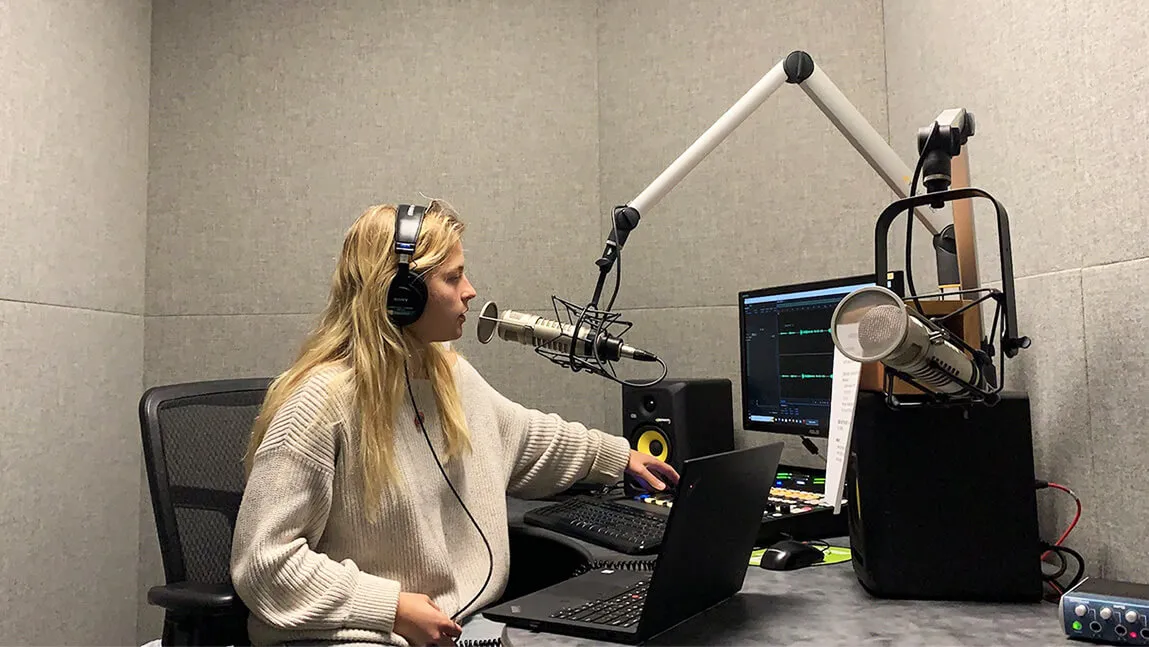At its best, an internship is so much more than just a job. It’s a chance to sharpen skills and learn new ones, explore an interesting field to see if it’s a good fit, and make professional connections. In other words, it’s a way for students to get a serious leg-up as they prepare for their future careers. We asked six CAS students to talk to us about their fall 2022 internships and how those experiences are changing how they see what lies ahead in their own lives. Here’s what they had to say.
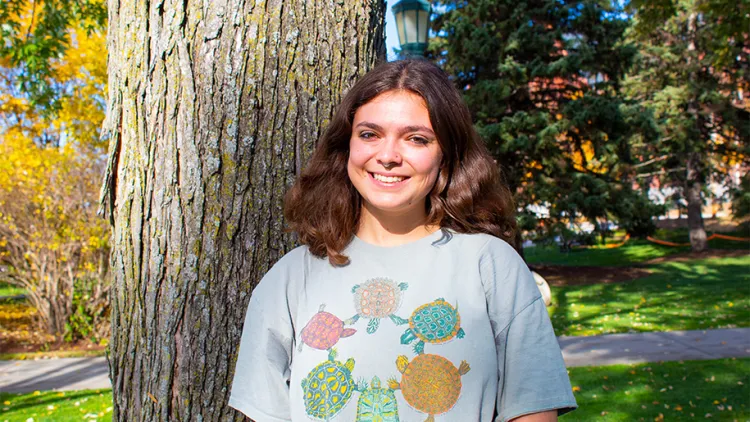
Name: Annie Barton
Year: Senior
Majors: Religion and English
Internship: Undergraduate Intern at UVM’s Interfaith Center, a non-denominational campus center for spiritual reflection and practice, education, and community building
What she does: Moderates the weekly book club, acts as a small group facilitator during the monthly “Dinner and Dialogue” program, helps organize special events, handles administrative duties
Why she enjoys it: “I really like this internship because I got to pick my own role. I wanted to work with other students who were interested in examining the relevance of religion in a seemingly secular space such as UVM. This internship allows me to investigate varying degrees of religiosity and what belief looks like for different people.”
What she’s learned: “The Interfaith Center is a space where people can discuss things they may not feel comfortable talking about in other areas of their lives, and it’s helping me learn the importance of listening and treating difference as a positive thing. I’m also discovering that working in the academic world doesn’t mean you have to be a professor—there are many different roles for me to explore.”
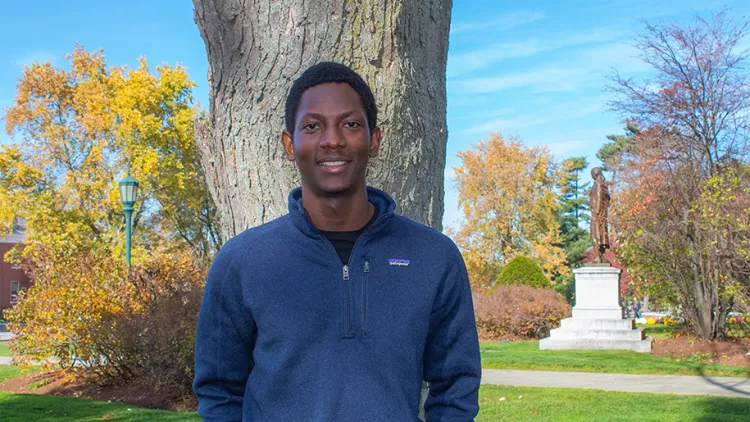
Name: Martin Clarke
Year: Senior Majors: Mathematics and economics
Internship: Policy Intern at the Public Assets Institute, a non-profit devoted to improving the well-being of Vermont citizens, particularly those who are the most vulnerable
What he does: Analyzes and contextualizes government data related to the annual “State of Working Vermont” report, including creating charts and communicating the stories behind them
What he’s learned: “I’ve learned so many transferable skills, such as networking and using tools like Excel. Plus, the internship has helped me learn more about Vermont and connect with the state a bit more.” What surprised him: “I didn’t expect that there would be so much data available from the government that anyone can access. Most people don’t know it’s out there.”
What it means for the future: “I’m discovering different avenues I can take with an economics degree that I didn’t know about before. It’s been great to be able to actually apply what I’m learning in class and to know that the work I’m doing in my internship is creating some sort of tangible good.”
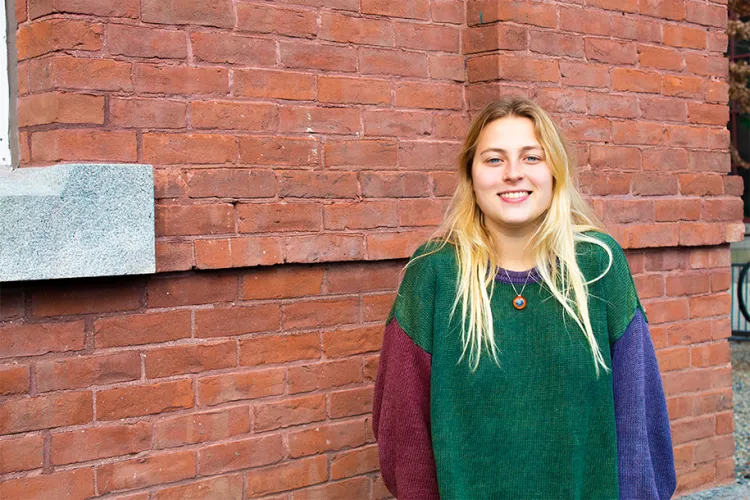
Name: Mae Nagusky
Year: Junior
Major/minors:Film studies major, sociology and reporting and documentary storytelling minors.
What she does: Conducts interviews, does research, produces promos, edits, and writes for Vermont Public’s Brave Little State.
Why she enjoys it: “This is such a collaborative space. Typically, journalism is more of a solo endeavor, but this team works together in a way I haven’t seen before. Everyone shows such trust in one another. Plus, throughout the internship, they have shown respect for me and appreciation for my work.”
What she’s learned: “There are so many possibilities in the world of audio and so much room for creativity and collaboration in the work we do. The emphasis on growing as a team and in our form is something I’ll keep with me forever.”
What it means for the future: "Brave Little State is a show that is rooted in curiosity—we start with a question and dive really deeply into it. I’ve discovered that that approach to curiosity, putting all your effort into answering each episode’s central question, is really rewarding. The show itself is well produced and has given me the opportunity to gain audio editing skills. I approach my work now through a lens of optimism.”
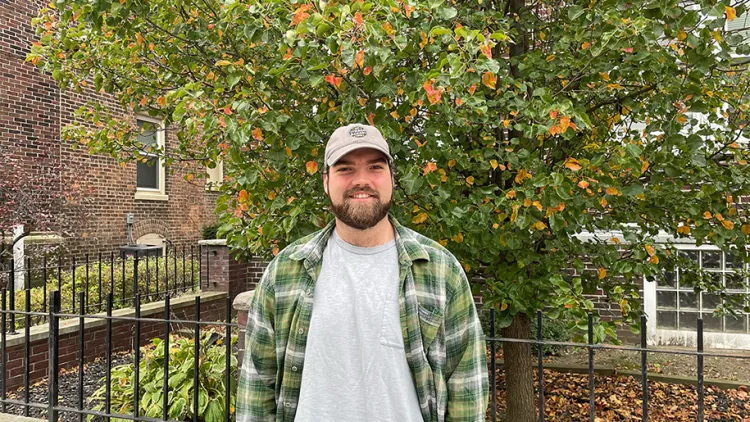
Name: Henry Neuman
Year: Junior
Major/minor:Environmental studies major, community entrepreneurship minor
Internship: Marketing and Business Development Fellow for Green City Growers, a B-Corp focused on educating people about food production and urban agriculture (part of the Boston “Semester in the City” program)
What he does: Researches and creates client lead lists, writes and analyzes email campaigns, conducts site visits
What he’s learned: “Attitude matters a lot. When you don’t let the little things bother you and ask good questions, people around you will notice, and you’ll get much more out of the experience. I had to go to a lot of meetings at first and it was a little nerve-wracking. I wasn’t great at asking questions, but I’ve gotten better. I still don’t love public speaking, but my mentor has been great at encouraging me to speak up. It all comes down to making the decision to ask the question, and I’m discovering that nine times out of ten, other folks are wondering the same thing I am.”
His biggest challenge:: “The first part of my internship has involved a lot of spreadsheet work, which can be tedious, and it can be hard to stay focused sometimes. But I feel really lucky because the other work I get to do makes up for it.”
What it means for the future:“There are so many niche parts of food-related environmental studies that I didn’t know about, like urban agriculture. I don’t specifically know what I want to do after college, but I’m confident now that this is the right field for me and that I want to talk and work with people in a group setting. There are just so many more options for my career than I initially thought.”
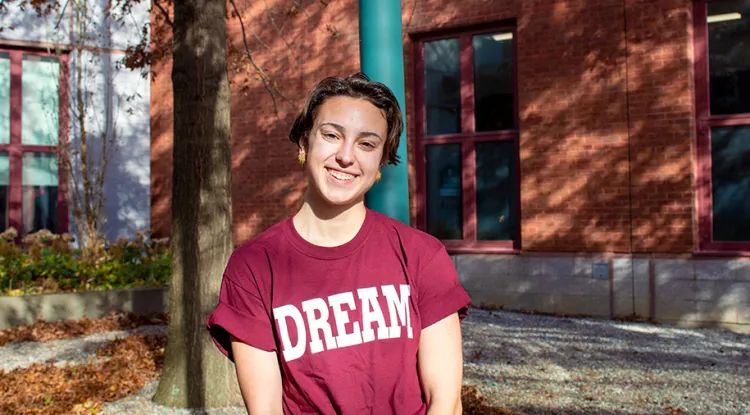
Name: Elida Powsner
Year: Senior
Major/minor: Psychology major, critical race and ethnic studies minor
Internship:Mentor/Coordinator for DREAM, a village mentoring program for school-aged kids
What they do: Plans and coordinates programming, conducts outreach to potential mentors, acts as mentor manager for a local chapter of 15 kids
Why they enjoy it: “I was looking for an internship that would give me the opportunity to grow and feel like I was making a difference in the community, and that’s just what I found. I feel that nonprofits are such a wonderful and genuinely caring work environment in a way that corporate jobs are not, and that’s something I value.
What they’ve learned: “This job has built a kind of resilience in me. When things don’t go as planned, instead of getting lost in a panic or losing my head, I’ve learned to take things step by step and work to solve the problem. I think, `If we can’t do it this way, how else can we do it?’ It’s definitely challenging at times—when you work with kids you never really know what’s going to happen—but I’ve learned to enjoy the spontaneity and just roll with it.”
What it means for the future: “Because it’s so important for my job, I’ve become more communicative with everyone, even my parents. I’m leaning toward going into social work, so the skills I’m learning, like how to use feedback to problem-solve and how to respond to people’s questions and concerns, will help in my future career.”
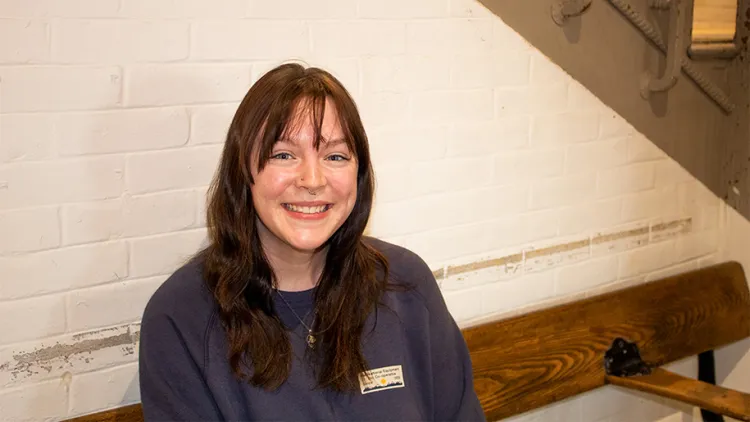
Name: Olivia Tibbetts
Year: Sophomore
Major: Studio art
Internship: Intern at Dust + Form, a local small-batch ceramics business.
What she does: Prepping slips (liquified clay that goes into a mold) and glazes, packaging and shipping orders, other studio chores
Why she enjoys it: “I’m learning so much in this internship about slip mixing, glaze mixing, how different chemical processes are carried out, and what happens in the kilns. Along with the scientific aspects, I’m also learning about the business.”
What she’s learned: “It’s so important to remember that you’ll never know everything and that you need to keep learning. With ceramics, there are so many things to consider, like packing, packaging, shipping, and lots of different techniques and materials. I’m starting to understand that the process of creating the art is just one part of a much bigger picture.”
What it means for the future: “There are a lot of parallels between what I’m doing now and what I see myself doing in the future. I’d like to try having my own website and shop where I can sell my pieces and curate other people’s art. I have another internship managing the website Student-Made UVM, which is part of a national network of campus sites where students can sell their art. That’s teaching me even more that will help me get where I want to go.”
